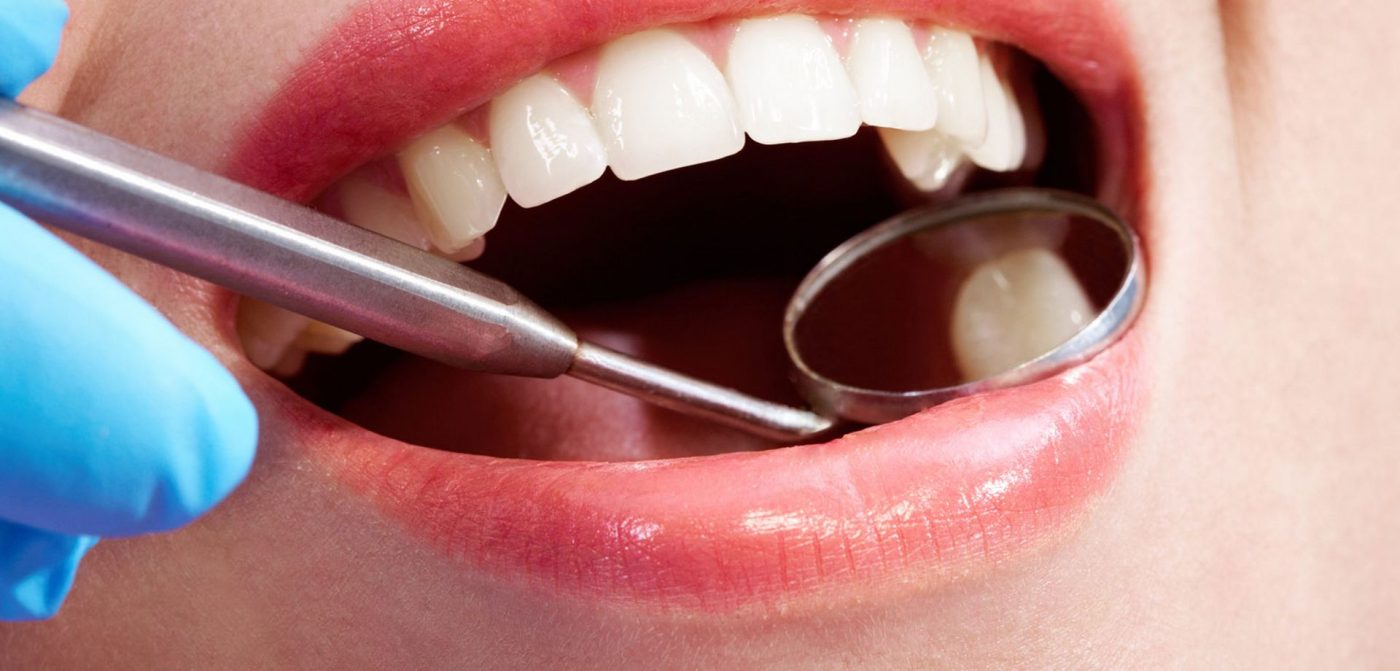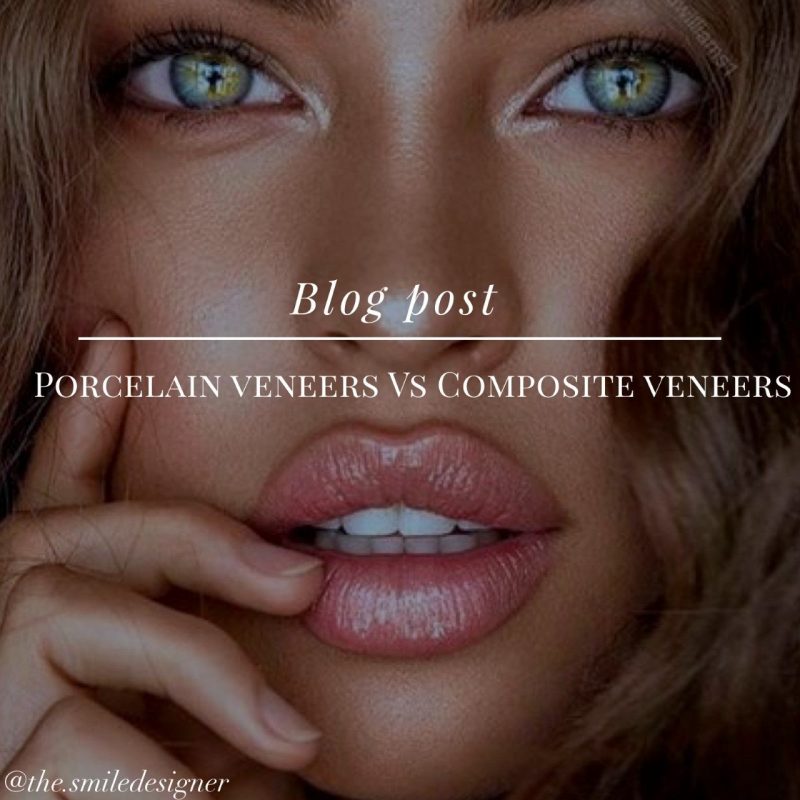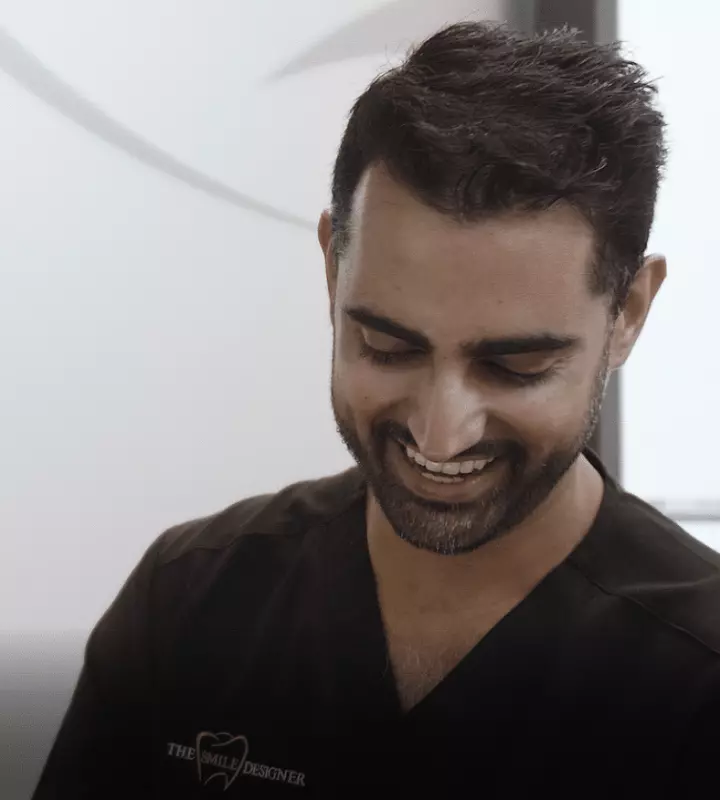Composite Bonding, Porcelain Veneers
What Is The Difference Between Porcelain Veneers & Composite Veneers?
Stuck between Composite veneers or Porcelain veneers? Whether it be a full smile makeover or a cosmetic correction of a tooth, veneers are an exceptional option. Whether it be composite or porcelain, veneers can dramatically improve the appearance of your teeth and smile. This procedure is ideal for those with chipped or stained teeth. They can also aid in correcting small misalignments and gaps.

There are different types of dental veneers. Porcelain and composite veneers are the two most common types of dental veneers. Both types have their own characteristics and benefits. Then, which one is better? What are the similarities and what are the differences? These are the common questions we get at The Smile Designer about composite and porcelain veneers. This article will outline some useful information on what the differences are and aid you in deciding when speaking to your dentist when considering dental veneers.
What are Porcelain Veneers?
As the name suggests, porcelain veneers are a thin shell of porcelain that is placed over the outer surface of the existing tooth/teeth. This thin shell is customized in a lab for the patient based on their teeth structure. Porcelain veneers overcome both aesthetic and functional issues, they form an effective solution to your cosmetic dentistry concerns.
What are composite veneers?
Composite Veneers are a resin affixed to the outer surface of your existing teeth to improve their appearance. The resin colour is made to match your teeth, this can improve the colour, shape, and dimensions of your, teeth effectively improving your overall smile.
What Are the Differences Between Porcelain and Composite Veneers?
Although both porcelain and composite veneers are used for the same purpose they vary in material and characteristics, therefore, having features that have their own pros and cons. Details about the differences between these two veneer types are as follows:
01
Durability
One of the main differences between composite veneers and porcelain veneers is longevity. Composite veneers are considered more durable today than in the past. They can last from anywhere to 5 to 7 years, on average. Although porcelain shell is much more durable, and in its lifetime can last up to 15 years.Composite is a strong material but not as robust as porcelain. For this reason, it is more susceptible to wear-and-tear, damage, chipping and staining and therefore may require more frequent check-ups. You may be able to extend the life of your composite veneers given that you take good care of them. Although if damaged composite veneers can be repaired when damaged and are reversible. On the other hand, even though porcelain veneers are more permanent, robust and will not stain, if porcelain veneers get damaged, they must be replaced.
02
Cost
Ultimately you want high-quality materials and high-quality work that will last. After all, everyone will see the results as soon as you open your mouth to talk or smile. Porcelain veneers are more expensive than composite veneers due to their composition of materials used. The application of veneers is a time-consuming process, and additionally, it requires serious knowledge and expertise to place these veneers therefore there is an increase in the cost involved.However, when it is considered in the long-term, it is possible to use porcelain veneers without any problem for years. Although less expensive than porcelain veneers, composite veneers can still be pricey. Composite veneers may cause different problems such as chipping and staining due to their material, and these may result in extra cost and regular visits to the dentist. When such probabilities are considered, it can be said that porcelain veneers are more advantageous from a cost point of view after a certain point.
03
Time
The application time of porcelain and composite veneers vary. Preparing and applying composite veneer application procedure is much faster than porcelain veneers. Usually, a single visit is required and during your visit, the tooth colour is matched with the veneer colour and the material is sculpted directly on your teeth and the necessary corrections are done to build the veneer that that fits your smile.A porcelain veneer, on the other hand, is produced specifically in a laboratory environment therefore will require 2-3 dental visits to complete the procedure. In the initial consultation, your dentist will discuss the necessary steps, goals and cosmetic imaging mock-up is done. This will allow you to preview your new smile. Once agreed small amounts of enamel will be removed from the teeth that the Porcelain veneers will be fixed on. Once the impressions of your teeth are taken the correct colour match is determined for your teeth and during the delivery time, temporary veneers will be applied until the Porcelain Veneers arrive from the Laboratory. Once received back from the lab your dentist will confirm shape, size, and colour before bonding the new Porcelain veneers to your existing teeth. So, for this procedure, it can be said that you will need around 2-3 weeks.
Advantages of Composite Veneers:
- Affordability: Composite veneers are often more budget-friendly compared to alternatives like porcelain veneers, making them accessible to a wider range of patients.
- Minimal Tooth Reduction: Composite veneers require minimal removal of tooth enamel, preserving more of your natural tooth structure.
- Quick Application: The application process for composite veneers is typically faster, with some cases completed in a single dental visit.
- Reversibility: Unlike porcelain veneers, composite veneers can be easily repaired or modified if needed without replacing the entire veneer.
- Natural Appearance: Composite resin closely resembles natural tooth enamel in color and texture, providing a highly aesthetic result.
- Less Sensitivity: Patients often experience less post-treatment tooth sensitivity with composite veneers compared to other dental procedures.
- Versatility: Composite veneers can address various cosmetic issues, including discoloration, chips, cracks, gaps, and misalignment.
- Customisation: They offer the advantage of on-the-spot customisation, allowing the dentist to make real-time adjustments for the best fit and appearance.
- Conservative Treatment: Composite veneers are a conservative option, as they require less tooth reduction and offer a less invasive approach to cosmetic enhancement.
- Durable: With proper care, composite veneers can last several years, providing long-lasting cosmetic improvements.
- Repairable: If damaged or chipped, composite veneers can often be repaired without the need for complete replacement.
- Stain Resistance: Composite veneers are stain-resistant, helping to maintain their appearance over time.
Advantages of Porcelain Veneers:
- Natural Appearance: Porcelain veneers closely mimic the appearance of natural teeth in terms of color, texture, and translucency, providing a highly lifelike result.
- Stain Resistance: Porcelain is highly resistant to staining and discoloration, helping maintain a bright and attractive smile.
- Durability: Porcelain veneers are known for their long-term durability, often lasting a decade or more with proper care.
- Customisation: Veneers are custom-made to fit each patient’s unique dental anatomy, ensuring a precise and tailored fit.
- Versatility: Porcelain veneers can address a wide range of cosmetic concerns, including severe discoloration, chips, cracks, gaps, and misalignment.
- Minimal Tooth Reduction: Despite their thin profile, porcelain veneers are strong and require minimal tooth reduction during the preparation process.
- Stain Resistance: Porcelain veneers are highly stain-resistant, helping maintain their appearance over time.
- Low Maintenance: They require little maintenance beyond regular oral hygiene practices.
- Natural Bite: Veneers are designed to maintain the natural bite and chewing function of the teeth.
- Permanent Solution: Porcelain veneers offer a permanent cosmetic solution for lasting smile improvements.
- Easy to Clean: Cleaning porcelain veneers is straightforward, as they can be cared for like natural teeth.
- Enhanced Confidence: A beautiful smile created with porcelain veneers can boost self-esteem and confidence.
Types of Veneers
- Porcelain Veneers: Porcelain veneers are made from high-quality, durable porcelain material. They are custom-crafted to match the color, shape, and size of your natural teeth. Porcelain veneers provide a highly natural appearance and are resistant to staining. They are often considered a long-lasting cosmetic solution.
- Composite Veneers: Composite veneers are crafted from a tooth-colored resin material that is directly applied to the teeth and shaped by the dentist. They offer a more affordable option for enhancing the appearance of teeth. Composite veneers are typically applied in a single visit and are suitable for mild to moderate cosmetic concerns.
The Main Differences in Composite Veneers vs Porcelain Veneers
- Composite Veneers: Made from tooth-colored resin material applied and shaped directly on the teeth.
- Porcelain Veneers: Crafted from high-quality porcelain material, custom-made to match the appearance of natural teeth.
- Composite Veneers: Generally less durable than porcelain veneers and may require more frequent maintenance or replacement.
- Porcelain Veneers: Known for their long-term durability and resistance to staining, often lasting a decade or more with proper care.
- Composite Veneers: Provide a natural appearance but may not replicate the translucency and shine of porcelain as closely.
- Porcelain Veneers: Closely mimic the appearance of natural teeth in terms of color, texture, and translucency, offering a highly lifelike result.
- Composite Veneers: Thicker than porcelain veneers, which may require more tooth reduction during the preparation process.
- Porcelain Veneers: Ultra-thin and require minimal tooth reduction, preserving more natural tooth structure.
- Composite Veneers: Less stain-resistant compared to porcelain veneers.
- Porcelain Veneers: Highly resistant to staining, helping maintain a bright smile.
- Composite Veneers: Easily repairable and modifiable if needed without replacing the entire veneer.
- Porcelain Veneers: Less flexible in terms of repairs and may require veneer replacement if damaged.
- Composite Veneers: Typically more budget-friendly than porcelain veneers.
- Porcelain Veneers: Often come at a higher cost due to the quality of materials and customization.
- Composite Veneers: Applied in a single dental visit, making them a quicker option.
- Porcelain Veneers: May require multiple visits, including a dental lab process for customization.
Porcelain Veneer Application Procedure
- Consultation and planning
- Tooth preparation
- Impression and lab work
- Temporary veneers (if needed)
- Final veneer placement
- Bonding and adjustments
- Polishing and care instructions
Composite Veneer Application Procedure
- Consultation and planning
- Tooth preparation (optional)
- Color matching and application
- Bonding and shaping
- Final adjustments and polishing
- Care instructions.
Porcelain vs. Composite Veneers: What is the Verdict?
The advantages of porcelain veneers are evident as outlined in this article. Porcelain Veneers offer the most robust, most natural, and tooth-like aesthetics. If you are looking for more cost-effective and reversible treatment, then composite veneers may be the better fit. Whichever material you choose both porcelain and composite veneers offer excellent smile enhancements and will produce aesthetically pleasing smile makeovers.By working closely with our dentists here at The Smile Designer Dental Studio, you can have an open discussion to see if you are a good candidate for veneers. If you are ready to take the first step, book in for a free cosmetic smile makeover consultation or feel free to contact our team at The Smile Designer Dental Studio to find out more! We are here to answer any questions you may have and take the steps needed to restore your smile.































